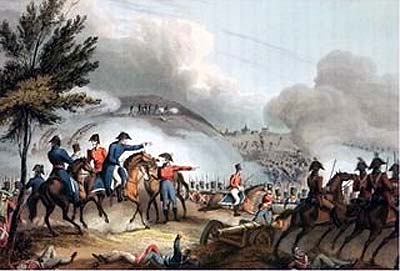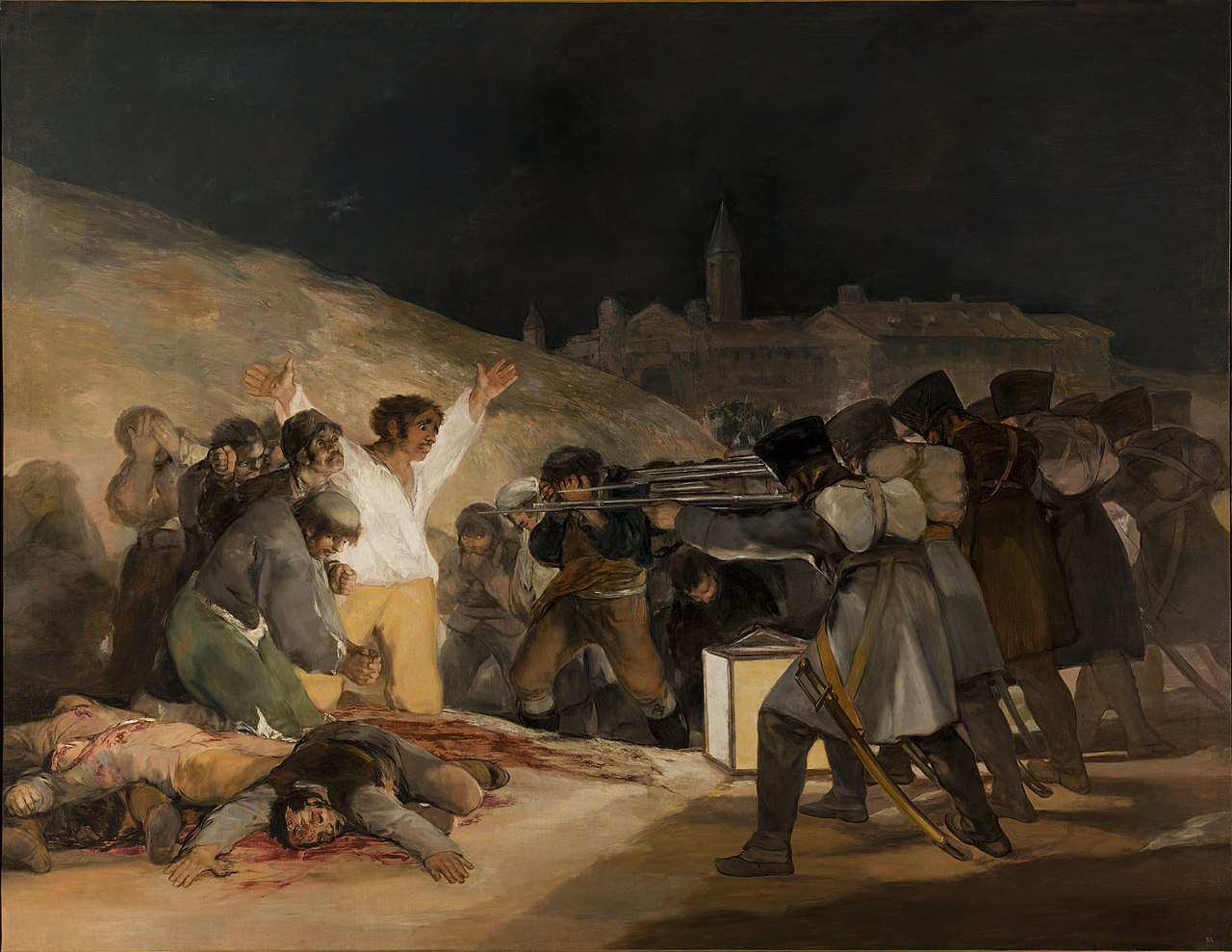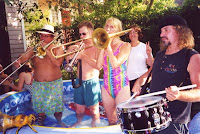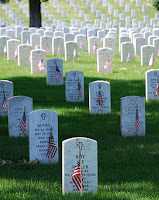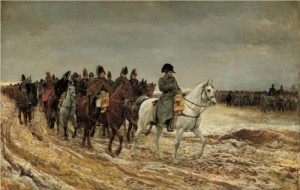There are a handful of events that for good or ill (more often for ill, unfortunately) are unforgettable. I’ll never forget where I was when I heard about the Challenger disaster–I was in 9th grade, and they announced it over the intercom during 4th period Alabama History.
I found out about the 9/11 attacks when I was awakened by a phone call from my parents, who were supposed to be flying into Seattle for a visit later that day. Mom said, “All flights have been canceled.” Assuming she meant all flights out of Birmingham, I asked if there’d been some kind of storm or problem at the airport. She told me there had been a terrorist attack and to turn on the TV.
And most recently, a few years ago I was waiting for dinner at Red Robin with my husband and daughter. Mr. Fraser and I were checking Twitter on our phones, as internet addicts are wont to do, when tweets started to buzz with the news that President Obama was about to “address the nation.”
It sounded ominous, so we speculated about possible war with Iran or North Korea. I also worried that it might be something like a hideous cancer diagnosis for either the President or the First Lady, and that he might be stepping down and handing the reins to Vice-President Biden because of it–ever since I lost both my parents to lung cancer, my mind goes to the C-word in a hurry.
Instead, of course, the big news was the death of Osama bin Laden. We’d figured it out from Twitter before one of the TV feeds in the restaurant switched from sports to the news–which was neither captioned nor audible in the noisy restaurant, so Mr. Fraser and I leaned over the booths to tell our fellow diners what was happening as soon as we heard their baffled concern. Eventually, the headline at the bottom of the screen said something like, “Bin Laden death confirmed,” and the line cooks, most of whom would’ve been in junior high on 9/11, started cheering and stomping their feet.
We were home by the time the president actually spoke, so Mr. Fraser and I stood together our den–somehow it seemed too solemn a moment for lounging on the couch–and listened.

In the time period I write about, there was plenty of momentous news, though of course it rippled through the world much more slowly. I imagine if I’d been born in 1771 instead of 1971, I’d remember where I was when I heard about the French Revolution and Trafalgar and Waterloo, to name a few. So, when I read a collection of first-hand accounts of Waterloo in The Hundred Days (compiled and edited by Antony Brett-James), I was intrigued to find a chapter about how the news reached France and Britain. I was then flabbergasted by the following account by Mrs. Boehm, the woman hosting the ball the Prince Regent was at when Wellington’s messenger arrived:
That dreadful night! Mr. Boehm had spared no cost to render it the most brilliant party of the season; but all to no purpose. Never did a party, promising so much, terminate so disastrously! All our trouble, anxiety, and expense were utterly thrown away in consequence of–what shall I say? Well, I must say it–the unseasonable declaration of the Waterloo victory! Of course, one was very glad to think one had beaten those horrid French, and all that sort of thing; but still, I always shall think it would have been far better if Henry Percy had waited quietly till the morning, instead of bursting in upon us, as he did, in such indecent haste; and even if he had told the Prince alone, it would have been better; for I have no doubt his Royal Highness would have shown consideration enough for my feelings not to have published the news till the next morning.
…After dinner was over, and the ladies had gone upstairs, and the gentlemen had joined them, the ball guests began to arrive. They came with unusual punctuality, out of deference to the Regent’s presence. After a proper interval, I walked up to the Prince, and asked if it was his Royal Highness’s pleasure that the ball should open. The first quadrille was in the act of forming, and the Prince was walking up to the dais on which his seat was placed, when I saw everyone without the slightest sense of decorum rushing to the windows, which had been left wide open because of the excessive sultriness of the weather. The music ceased and the dance was stopped; for we heard nothing but the vociferous shouts of an enormous mob, who had just entered the square, and were running by the side of a post-chaise and four, out of whose windows were hanging three nasty French eagles. In a second the door of the carriage was flung open, and, without waiting for the steps to be let down, out sprang Henry Percy–such a dusty figure!–with a flag in each hand, pushing aside everyone who happened to be in his way, darting up stairs, into the ball-room, stepping hastily up to the Regent, dropping on one knee, laying the flags at his feet, and pronouncing the words “Victory, Sir! Victory!”
The Prince Regent, greatly overcome, went into an adjoining room to read the despatches; after a while he returned, said a few sad words to us, sent for his carriage, and left the house. The royal brothers soon followed suit; and in less than twenty minutes there was not a soul left in the ballroom but poor dear Mr. Boehm and myself.
Such a scene of excitement, anxiety, and confusion never was witnessed before or since, I do believe! Even the band had gone, not only without uttering a word of apology, but even without taking a mouthful to eat. The splendid supper which had been provided for our guests stood in the dining-room untouched. Ladies of the highest rank, who had not ordered their carriages till four o’clock a.m., rushed away, like maniacs, in their muslins and satin shoes, across the Square; some accompanied by gentlemen, others without escort of any kind; all impatient to learn the fate of those dear to them; many jumping into the first stray hackney-coaches they fell in with, and hurrying on to the Foreign Office or Horse Guards, eager to get a sight of the List of Killed and Wounded.
I first read that account years ago, and it still boggles my mind. I can understand that it would suck to put down the kind of money it would take to throw a ball for the highest of London’s elite and have it all go to waste. But to still resent it, years later (her account is from 1831), when it was abundantly clear just how important Waterloo was? And the way she seems to focus on breaches of propriety above all else–Henry Percy was dusty, and he shoved people out of the way in his haste to reach the Prince Regent. One might almost think he was bearing critical news for his country’s acting head of state or something! Not to mention those ladies running out in their muslin gowns and slippers, with or without escort, all because they had brothers or sons or sweethearts with the army and wanted to know if they were still alive. How shocking! And lest you think her reaction is somehow typical of her time, the behavior of her guests belies it. Also, all the other accounts sound remarkably like what happens now in those moments we all remember–normal social barriers breaking down, everyone turning out into the streets to talk it over, etc.
We’re now just a month away from the bicentennial of the Battle of Waterloo. I’ll be away from the Riskies in June and July because of my family’s trip to Europe, which will include attending the battle reenactment. When I get back I’m sure I’ll have many stories to share!
(The painting illustrating this post is David Wilkie’s Chelsea Pensioners Reading the Waterloo Dispatch, which the Duke of Wellington commissioned at a cost of 1200 guineas. I think it’s a more typical reaction than Mrs. Boehm’s, don’t you?)


